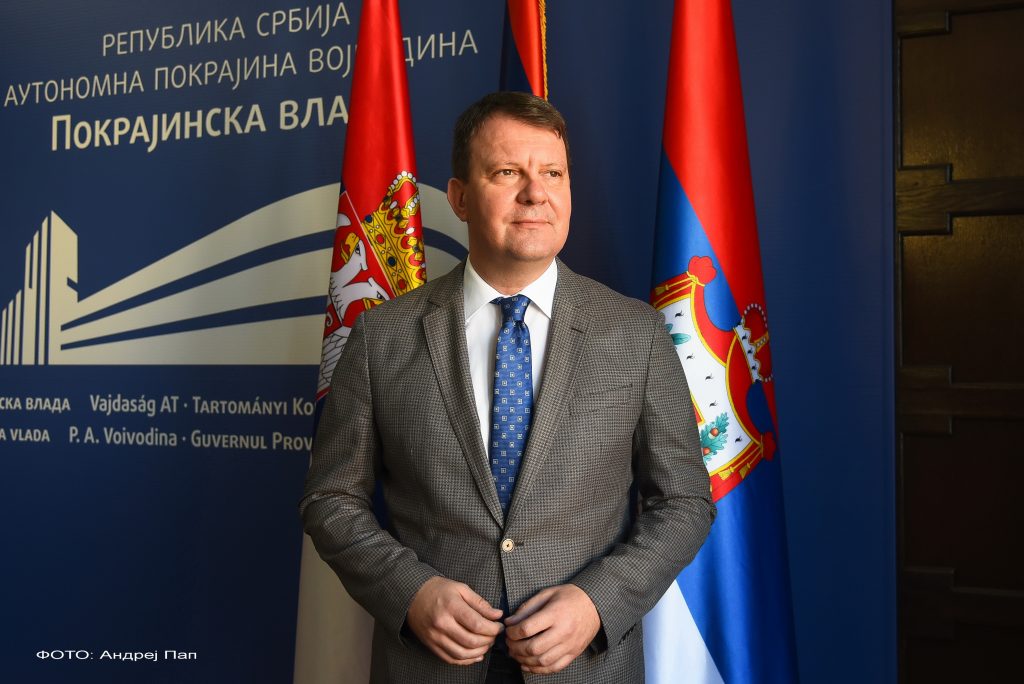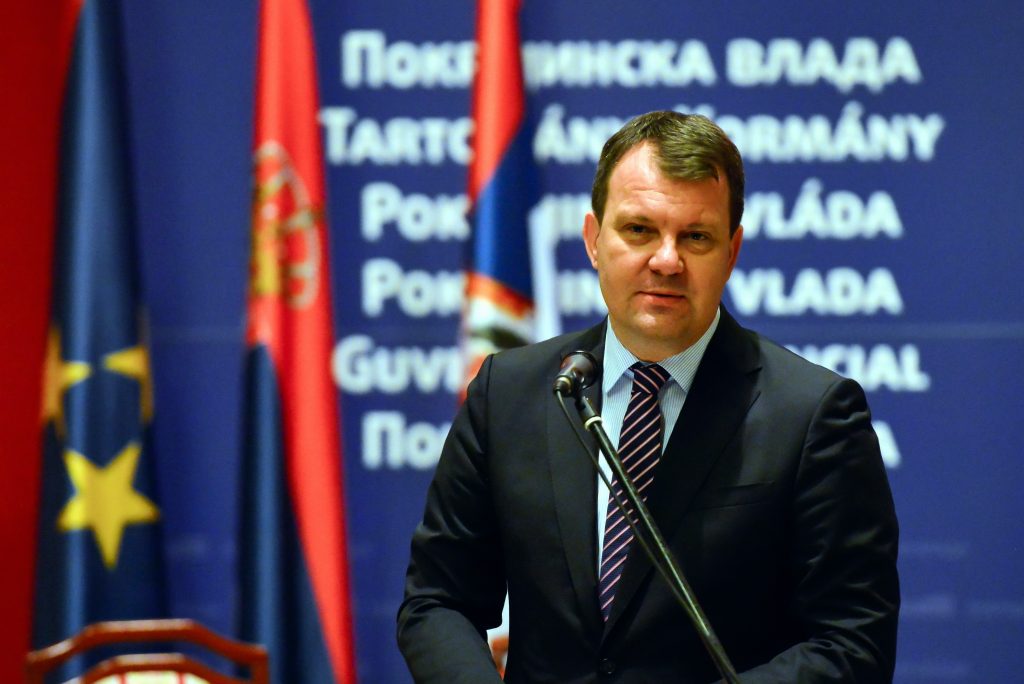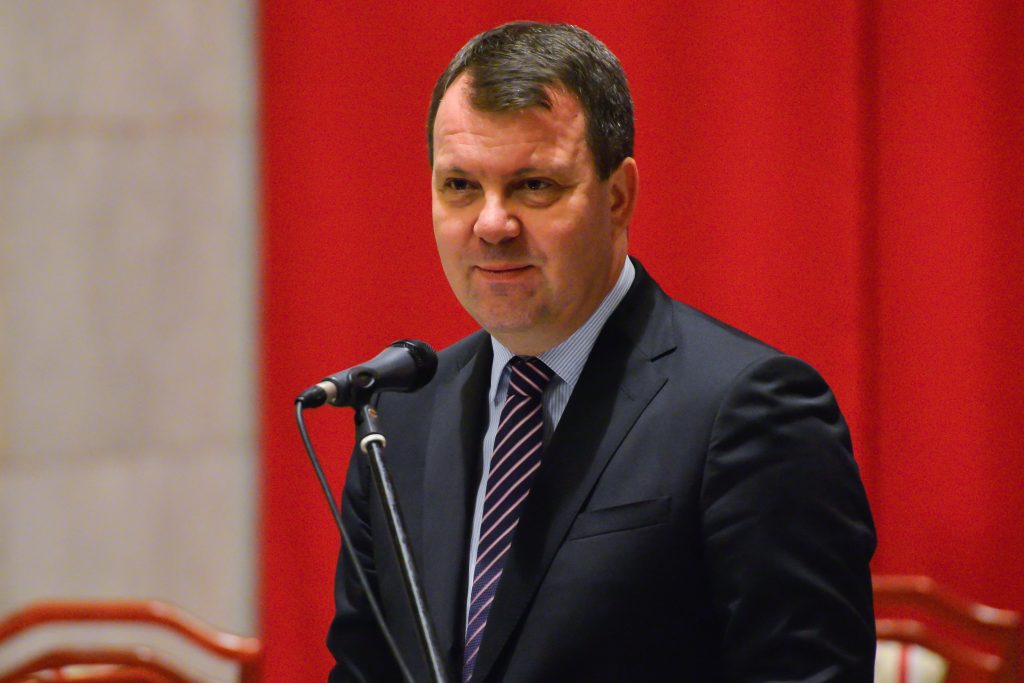I think that Serbia has laid an extremely good foundation for economic growth in the coming period
We talked with Igor Mirović, the head of the Vojvodinian Government, about the cooperation between Italian businesses and Vojvodina, the cooperation agreement signed with the Lombardy region three years ago, the improvement of cooperation and the efforts that Serbia is constantly making to improve conditions for doing business.

In 2018, Vojvodina and Lombardy signed a cooperation agreement. How would you rate that cooperation and its importance today?
In 2018, the Autonomous Province of Vojvodina signed an agreement with Lombardy, one of the most developed Italian and European regions. The fact that Lombardy is one of the most developed Italian and European regions is a strong signal and reliable sign of Vojvodina’s intention to use experiences, knowledge, models and examples from the truly efficient practice of organizing primarily economic activities, but also all other areas of life in Lombardy. The most important issues covered by the agreement relate to economic cooperation, connecting the respective chambers of commerce and businesses and attracting direct investments. In that sense, immediately after the Agreement was signed, we established several contacts, agreed upon individual projects and presented Vojvodina in Lombardy.
Although the Covid-induced crisis, which has been going on for a year and a half and which first emerged on European soil in Lombardy, has slowed down our cooperation, we are very optimistic about it in the future and have new projects on our common agenda.
In February, you spoke with the President of the Lombardy Region, Attilo Fontana. What are the highlights of the conversation?
We exchanged views on the current situation related to the fight against the Covid-19 virus, but also underlined the importance of cooperation. We had an agreed appearance at one of the most important Italian trade fairs, in Verona, where we would promote our achievements in viticulture and winemaking which unfortunately fell through. That would have been a great occasion to meet Mr. Fontana and his associates. The crisis has delayed our plan to meet as early as May or June, but we are indeed constantly in touch. Over the past week, Mr. Fontana’s associates and my associates have discussed a whole range of issues. The conclusions are very concrete – to continue nurturing contacts, to connect our respective development agencies, to establish closer cooperation between scientific institutes and to find additional topics of common interest during our frequent contacts.
During my stay in Milan, Lombardy, I got an impression that Mr. Fontana and his associates are sincere friends of our country and reliable partners of Vojvodina and that through the concretization of our cooperation we will be able to improve some of its forms and define them in line with our common interests.

I think you have already answered the following question but how can the two provinces improve their cooperation further?
I would like to add that we are interested in an even stronger presence of Italian businesses in Vojvodina, as well as in technology transfer in specialized areas, such as agriculture, scientific and technological activities related to biotechnology, in contacts relating to the development of activities that will be carried out under the auspices of our university and the Science in Technology Park, after we finish equipping the Park in autumn of this year. We are also interested in cultural cooperation because important European cultural institutions are located in Milan and other cities in Lombardy, while the most important and oldest cultural institutions in Serbia are located in Novi Sad.
The Government of the Republic of Serbia and the Vojvodinian Government sent aid to Italy when the country needed it most. How important is this type of cooperation between the two countries and what does it demonstrate?
The aid sent by the Government of the Republic of Serbia, which is much more generous than the aid we sent, demonstrated the strength and ability of Serbia to help our friends but also express our solidarity and show that they are not alone in moments of great crisis and great challenges. Serbia showed that it was able to act effectively and to protect its own people, on the one hand, which could be seen in a very efficient procurement of protective equipment and the latest medical devices from across the world, as well as also help those regions, like Lombardy, that were severely affected by the crisis to ensure that they can overcome this crisis more easily. The Vojvodinian Government also donated 25,000 euro as a gesture of friendship, solidarity and sincere hope that the crisis in Lombardy will be overcome. These days, following the reports from Lombardy, I saw that more than four million doses of Covid vaccine were administered in that region, which means that Lombardy has managed to vaccinate a large number of its population out of a total of 10 million in a short time. As a result, the situation is much better, and we hope that our help has contributed to that.

What can Vojvodina and Serbia do to improve their economic environment to attract even more investors from Italy, but also increase domestic exports?
First of all, the political stability and significant efforts invested in the modernization of infrastructure in Serbia were a good signal for a large number of investors to come here to invest and create new jobs. But that’s not enough. Our goal in Vojvodina is to bring down unemployment even more in the next five or six years, from the current rate of around 9% to between 4.5% and 5%, or, expressed in absolute numbers, from the current 100,000 to less than 50,000 unemployed people, which happened last time in 1989, albeit in different socio-historical circumstances. To achieve that, we will need the help of Italian partners and new investors. We are ready, we have overhauled and built new industrial zones, the ones we did not have five years ago, such as the zones in Šid, Kula and Bačka Topola, and to expand the Pančevo industrial zone.
With the implementation of new infrastructure projects, such as the Fruška Gora corridor, the Belgrade-Zrenjanin-Novi Sad motorway and the fast road from Sombor to Kikinda, which will all be completed in the next three to five years, we will create additional prerequisites for smaller Italian companies to come and invest in less developed places that are located near these roads and possibly employ between 100 and 1000 people per project.
So our common goal is to continue this process, but with much better promotion of our country’s potentials, in order to boost its economic growth, increase exports, especially of agricultural products, also in the segment of the joint engagement in the processing of these products. We see a great opportunity in that. The Italian partners have extremely powerful technology, especially for the processing of agricultural products, so we will look for such solutions in the future, also via the influence of the regional authorities of Lombardy.